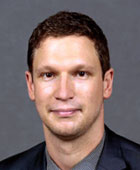During one of my medical school away rotations in Ghana, I talked with many community members about mental health. To decrease the stigma of mental health conditions, we started so-called Brain Awareness activities in the Ketu South Municipality in Ghana. The educational aspect of these activities was bidirectional: We taught community members about the brain’s parts, its function when it is healthy, and signs of mental illness. In return, the community members taught us by giving us some insight, through their questions and comments, about how mental illnesses are linguistically framed and culturally conceptualized, the barriers to mental health care and challenges, and solutions to overcome some of the barriers.
Some of the challenges differed significantly between communities. These differences, which should be considered when we think about the biopsychosocial-spiritual model of mental health, should be considered not only when making diagnostic and treatment decisions, but also when we think about policymaking. The more “localized” (that is, community member-informed) policies there are, the better the community’s specific needs can be addressed. Other challenges, such as access to mental health professionals, were universal across communities. Based on its population of nearly 33 million, the number of psychiatrists in all of Ghana would translate to 10 psychiatrists for a place as big as New York City, with about 8.5 million people. In New York County (the borough of Manhattan) alone, there are more
than 1,800 registered psychiatrists, according to a report by the University of Michigan School of Public Health.
Many Ghanaians explain mental illness through a religious or spiritual lens. They would rather seek mental health care primarily from religious leaders in churches than from psychiatrists in hospitals or outpatient clinics. Therefore, instead of convincing community members to seek professional mental health services at health facilities, we organized workshops to discuss how religious leaders and mental health professionals can collaborate. The participants designed the so-called Brain Spirit Desk, which focuses on integrating religious institutions into a biopsychosocial-spiritual model of mental health. In the long term, the Brain Spirit Desk aims to increase the number of treated mental health patients from 10% to 30% in the Ketu South Municipality. In initial meetings, participants designed a wellness screening questionnaire, which screened, in a culturally appropriate and validated way, for depression, suicidality, anxiety, and substance use. The religious leaders allowed mental health professionals in their institutions to screen their congregation for mental health conditions, which helped endorse and build trust in mental health activities and professionals. The screening data allowed us to design tailored strategies and interventions for prevention, screening, and treatment based on demographic and identity information. Additionally, for community members who screened positive for a mental illness, bidirectional referral pathways were set up: Religious leaders referred the community members to mental health professionals for diagnosis and medication management, and mental health professionals referred community members to their religious leaders for surveillance (such as medication adherence) and psychosocial support.
You may ask yourself: “Why should I care? I live in the United States and not in Ghana.” The reality is that more than
half of all counties in our country do not have a single psychiatrist, according to a report from the Association of American Medical Colleges. The reality also is that historically underserved populations in the states are disproportionally affected by this demand-and-supply mismatch. And lastly, many of our patients feel more comfortable talking about their mental health with community members they trust, such as religious leaders, rather than with mental health professionals who work in a system that discriminates against our patients.
We must think creatively and holistically about how to provide equitable, optimal, and culturally appropriate patient care. We should consider extending the workforce beyond traditional mental health professionals while being mindful of patient safety and liability concerns. Instead of demanding new research, we may need to acknowledge existing research more. For example, hundreds of papers have been published in low- and middle-income country contexts about the effectiveness of task-sharing and -shifting. We do not necessarily need more papers demonstrating the effectiveness of the interventions—what we need to focus on instead is the “know-do” gap known from the implementation science field. Implementation science approaches allow us to adjust the effective task-sharing and -shifting interventions to the U.S. context so that the evidence-based practice is regularly used by mental health practitioners and policymakers.
Lastly, we may have to expand our horizon from what the United States can teach other countries regarding mental health care to what we can learn from other countries such as Ghana.
You may not be able to go to Ghana as I did during medical school and residency, but we can learn from and with each other through mutual capacity building. ■

